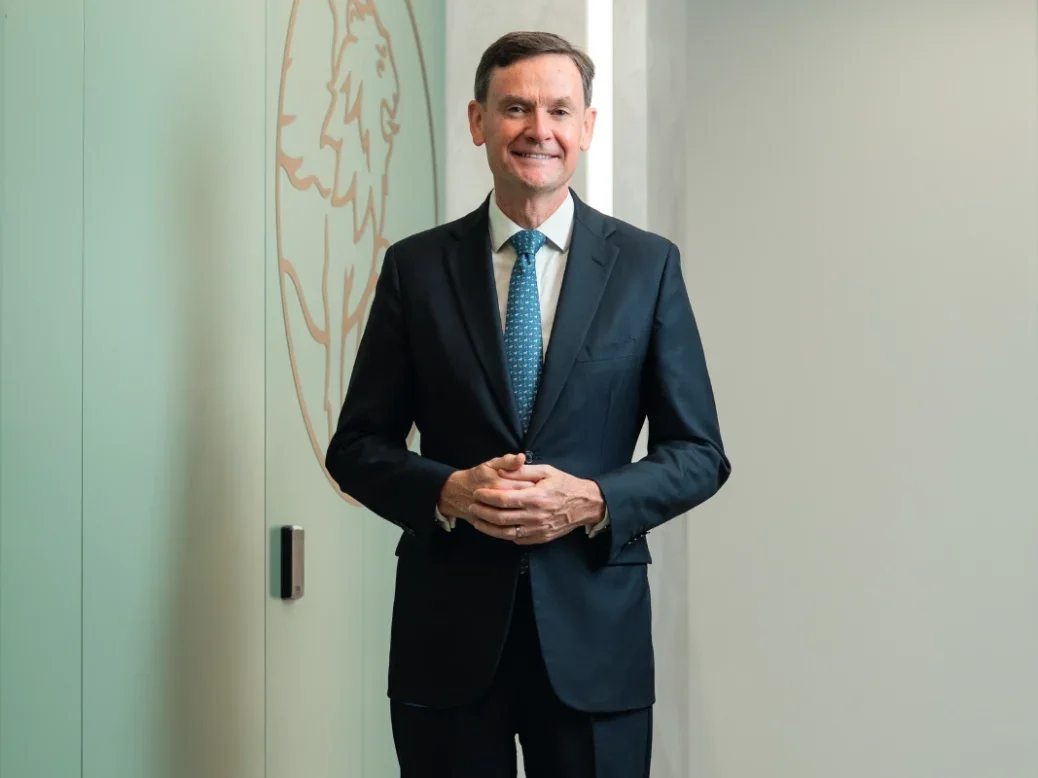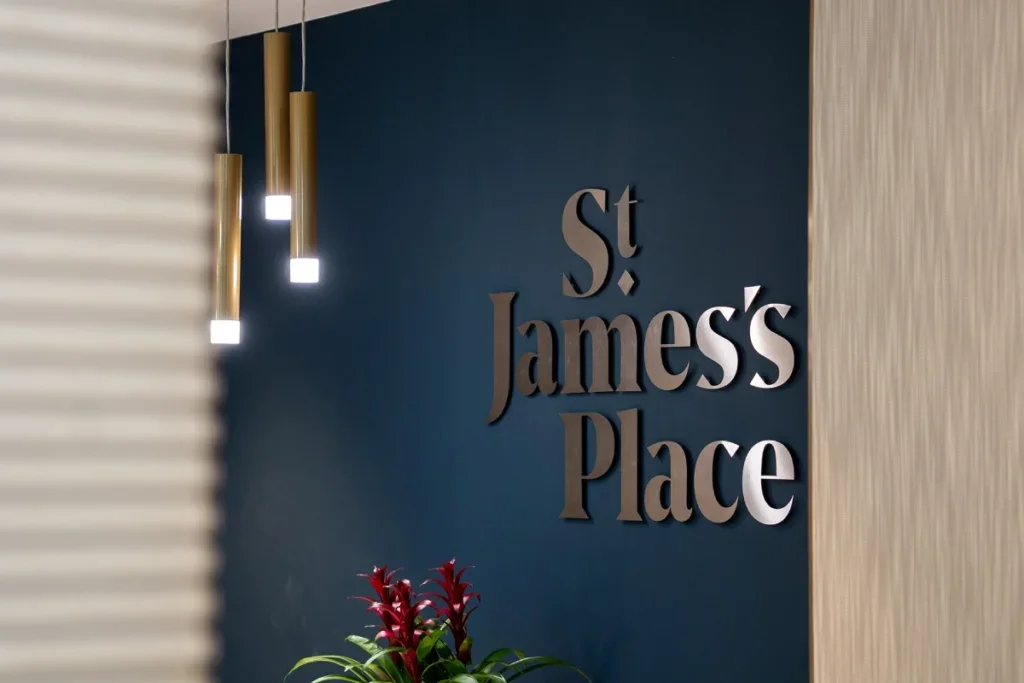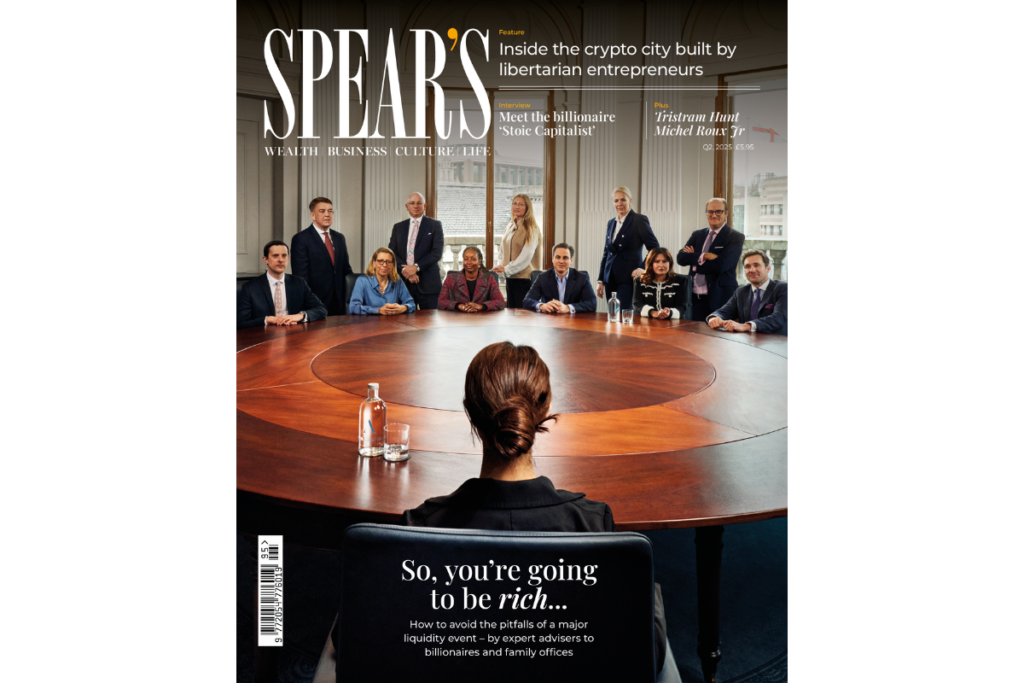
What a difference a year makes. This time in 2024, St. James’s Place, Britain’s biggest wealth manager, had slashed its dividend in half, posted its first loss in 10 years and announced it had set aside £426 million to compensate clients for advice they didn’t actually receive. As a result, its share price had tanked, with the Gloucestershire-based firm staring down the barrel of being relegated from the FTSE 100 index of the UK’s biggest companies.
Twelve months on, the company’s fortunes have turned around. It has returned to profit, been reinstated to the FTSE 100 and seemingly won over shareholders with a number of changes to its charging structure. The man responsible for leading that push is Mark FitzPatrick, the 56-year-old chief executive, who took the reins in November 2023 – just moments before the firm was placed under review by the Financial Conduct Authority (FCA) in relation to its charging model.
Of the turnaround, FitzPatrick tells Spear’s: ‘Within hours of arriving, the company was issued with a section 166 [review by the FCA], and so I quickly knew what I was in for. But we have embraced change and grasped the nettle on issues that needed to be addressed, and that has brought the whole organisation together.’
[See also: Introducing Spear’s Magazine: Issue 95]
‘Long and difficult road’
Indeed, when St. James’s Place published its latest annual report in February, post-tax losses of £9.9 million in 2023 were replaced by profits of almost £400 million in 2024. FitzPatrick said in the financial statement: ‘I am pleased to report a strong financial performance… despite the short-term costs incurred during 2024 as we progress with the implementation of our simple, comparable charging structure.’ Financial analysts applauded the results. Jefferies said that ‘perhaps the lack of any bad news was the most important thing’, while Panmure Liberum said there ‘remains very much more to come’ from the wealth manager. It had been a long and difficult road to get to that point, however.

When St. James’s Place told the market it had set aside that £426 million to compensate investors, its share price sank 30 per cent in a single day. In fact, by then the share price had slumped almost 75 per cent from its 2021 peak, as it became clear that the firm would have to make big changes in response to FCA moves that would force St. James’s Place (and other firms in the sector) to deliver value for money to customers.
Alongside the £426 million provision, St James’s Place also cut its annual product management fees from 1 per cent to 0.85 per cent and promised to remove its controversial exit fees for new clients during the second half of 2025. It had charged investors up to 6 per cent for leaving early, with one percentage point taken off per year of loyalty, meaning there was no charge after six years.
[See also: The Spear’s Wealth Management Indices 2024]
The exit fee was a big revenue driver, so the changes were a bitter pill for shareholders, but the share price has since rallied and is now around 150 per cent higher than its March 2024 low point – a rise that saw the wealth manager return to the FTSE’s top flight in December. FitzPatrick says now: ‘I told people when we were reinstated to the FTSE 100 that we should remember we aren’t defined by our market cap. I knew it wouldn’t take us long to return, but we were the same company when we dropped out and we were the same company when we came back in.’
Moving on from criticism
The turnaround does not mean the wealth manager has been free from criticism, however. According to the latest ‘Spot the Dog’ report, which names and shames the worst-performing investment vehicles in the UK, two St. James’s Place funds accounted for more than a fifth of the total £67 billion-worth of underperforming products highlighted in the list. The study – put together by Bestinvest, a platform owned by wealth manager Evelyn Partners – further showed that those funds were the two largest underperforming funds in the table, at £9.43 billion and £5.27 billion. FitzPatrick, however, calls the Spot the Dog report a ‘blunt tool’, pointing out that his company’s current fund performance is calculated after the deduction of a single ongoing charge that covers the cost for external fund management, administration and financial advice.
[Explore the complete Spear’s Wealth Management Indices 2024 on Spears500.com]
He tells Spear’s: ‘Because we will move to unbundled fees, that will change the situation in terms of the Spot the Dog report. The shift will help us in that regard when our fund performance can be compared like for like.’ The CEO has other plans up his sleeve and is also exploring how the company might create an alternative investments arm as well as a cash offering. What will certainly come first, however, is the launch of a range of passive funds – a big step for a firm that has long been a fierce proponent of active management. The launch comes as the size of the passive fund market globally has overtaken that of active funds.
[See also: the complete HNW Wealth Managers Index 2024 on Spears500.com]
FitzPatrick says: ‘The new passive range, when it launches, will not be about the view that active is dead and passive is king – we quite disagree with that. It is about passive funds now being an accepted part of portfolios. We still very much believe in the important role active management plays.’ And what of those who still think the fees charged by St. James’s Place are too high, despite the recent reforms? ‘I disagree with those who believe we are too expensive. We are very much in the pack when it comes to our fees. There are likely a lot of people who don’t know or understand all the changes we are making and the improvements we will be undertaking. They perhaps don’t have all the facts.’
This article first appeared in Spear’s Magazine Issue 95. Click here to subscribe







